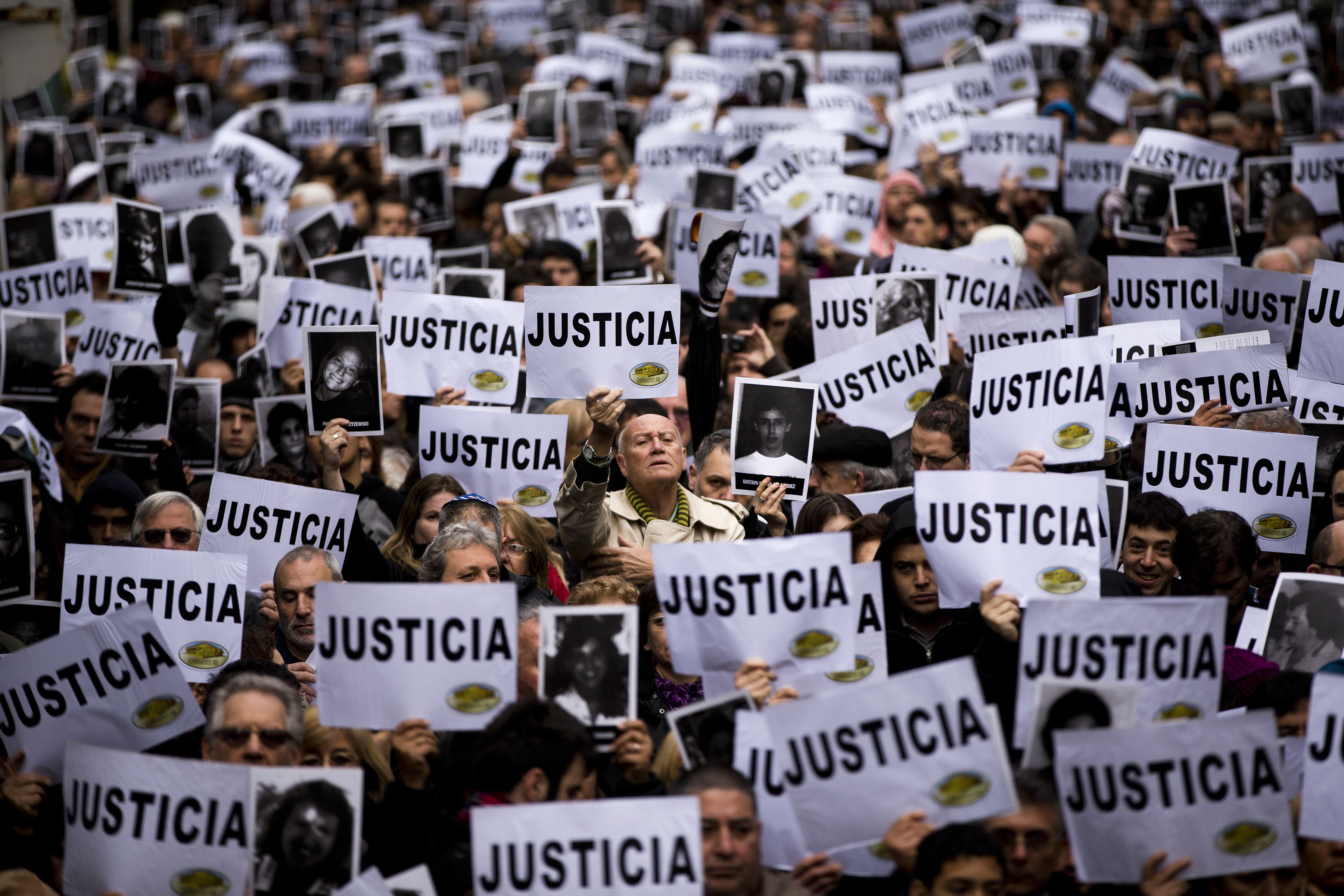Argentina is in the midst of a full-blown meltdown
The murder of special prosecutor named Alberto Nisman has thrown the country into complete turmoil


A free daily email with the biggest news stories of the day – and the best features from TheWeek.com
You are now subscribed
Your newsletter sign-up was successful
You may have heard that Argentina is in the grip of an all-consuming political affair that sounds more like something out of a paperback thriller than real life.
Let's wind back. An Argentine special prosecutor named Alberto Nisman had claimed that he had evidence that the country's government — including President Cristina Fernandez de Kirchner and Foreign Minister Hector Timerman — had covered up evidence related to the 1994 Jewish Community Center bombing which killed 85 and injured hundreds. According to Nisman, Iran had ordered the bombing and had it carried out by Hezbollah after Argentina canceled a nuclear technology transfer, and the Argentine government later agreed to cover it up in exchange for oil. Nisman was found dead with a bullet to the head on the morning that he was set to present his evidence to Argentina's Congress.
This happened in January, and I argued at the time that international attention to the case was important because Argentina's often erratic political institutions might not be able to bring justice to this sordid matter on its own.
The Week
Escape your echo chamber. Get the facts behind the news, plus analysis from multiple perspectives.

Sign up for The Week's Free Newsletters
From our morning news briefing to a weekly Good News Newsletter, get the best of The Week delivered directly to your inbox.
From our morning news briefing to a weekly Good News Newsletter, get the best of The Week delivered directly to your inbox.
What has happened since then?
Unfortunately, it seems that I was right in predicting that the Argentine political process would not cover itself in glory.
The Nisman Affair has been thoroughly politicized. A funeral rally that was supposed to honor Nisman was so co-opted by political opposition figures that some members his family refused to attend. Supporters of the government, bizarrely, later staged a counter-rally. (Counter to what, exactly? Justice and truth?)
President Kirchner, who already had a history of erratic behavior and of blaming setbacks on conspiracy theories, seems to have taken it to 11. She has at various times speculated that Nisman might have been killed by himself, or an aide, or Israel, or Iran, or her political opponents, or rogue intelligence operatives.
A free daily email with the biggest news stories of the day – and the best features from TheWeek.com
The most depressing part of the whole affair is that seemingly nobody in Argentina ever expects light to be shined on either Nisman's death or the Jewish Community Center bombing — and with some good reason.
It is widely assumed that the Argentine justice system is thoroughly politicized — the only question is who owns it. A judge has thrown out Nisman's evidence in a decision peppered with strange laudatory remarks about President Kirchner's political record. It is sure to be appealed. Whatever judicial resolution is eventually announced will be seen as political, rather than the truth, and evidence only of who was lucky enough to control the judiciary at the time.
All in all, it is a depressing pattern. Argentina is a wonderful country, with tremendous resources not only natural but cultural thanks to successive waves of immigration, that has been beset by terrible governing institutions. To this Frenchman, the Latin mix of conspiracy theorizing, politicized judiciary, lack of accountability, and even the whiff of anti-semitism is depressingly familiar. It was not long ago at all that my country had maybe-suicides-maybe-murders, the truth of which we'll never uncover, and shadowy political-judicial dirty tricks. And yet, despite all its problems, France is still a liberal democracy with a reasonable rule of law, better today than it was decades ago. It's worth remembering that Argentina has had four military coups within living memory — perhaps the fact that only one shot has been fired so far in the whole affair is something to be grateful for.
Not that we should give up on hope completely. Uncovering the truth about Nisman is not yet impossible — nor is it impossible that whatever light is shed on the affair could also provoke some sustainable and badly needed changes to Argentina's political culture.
Pascal-Emmanuel Gobry is a writer and fellow at the Ethics and Public Policy Center. His writing has appeared at Forbes, The Atlantic, First Things, Commentary Magazine, The Daily Beast, The Federalist, Quartz, and other places. He lives in Paris with his beloved wife and daughter.
